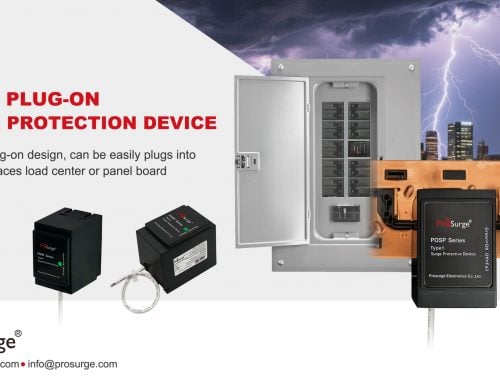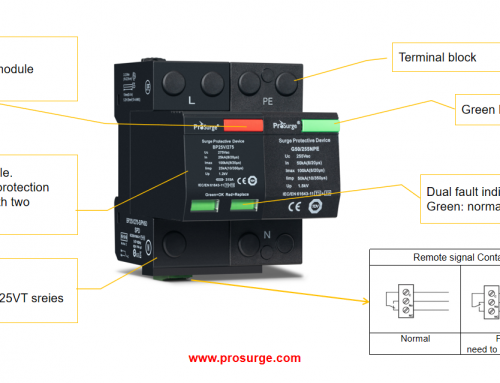Energy storage systems play a vital role in modern electricity grids, enabling the integration of renewable energy sources, improving grid stability, and providing backup power during outages. However, these systems are vulnerable to damage from power surges, which can occur due to lightning strikes, switching operations, or grid disturbances. Surge protection is essential for ensuring the safety, reliability, and longevity of energy storage systems.
Protecting Critical Components
Energy storage systems consist of various critical components, including batteries, inverters, control systems, and monitoring equipment. These components are sensitive to voltage spikes and can be damaged by power surges. For example, batteries are susceptible to thermal runaway and cell degradation if subjected to overvoltage. Inverters, which convert DC power from the batteries into AC power, can malfunction or fail if exposed to surges. Surge protection devices (SPDs) can safeguard these components by diverting excess voltage away from sensitive equipment.
Key Components Susceptible to Surge Damage
- Batteries:
- Vulnerable to overvoltage caused by external surges, which can lead to thermal runaway, electrolyte leakage, and cell degradation.
- Internal faults or short circuits within the battery system can also generate high current surges, damaging the battery cells.
- Inverters:
- Convert DC power from the batteries into AC power for use in the electrical system.
- Sensitive to voltage spikes and can be damaged by surges, leading to system downtime and costly repairs.
- Control Systems:
- Manage the operation and performance of the energy storage system.
- Vulnerable to electromagnetic interference (EMI) and radio frequency interference (RFI) caused by lightning strikes or nearby electrical equipment, which can disrupt communication and control signals.
- Protection Relays:
- Monitor the electrical parameters of the system and initiate protective actions in case of abnormalities.
- Susceptible to damage from overvoltage or high current surges, compromising their ability to detect and respond to faults.
- Monitoring and Communication Equipment:
- Ensure proper monitoring and communication between the energy storage system and the grid or control center.
- Prone to damage from surges, affecting data transmission and system performance.
Importance of Surge Protection
- Failure to protect these components can result in downtime, reduced system efficiency, and costly repairs or replacements.
- Proper surge protection measures can safeguard these components, ensuring the safety, reliability, and longevity of energy storage systems.





